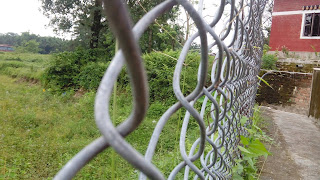I have had the pleasure of meeting this person of high repute and since then I have been closely following him with great
admiration and respect. And one day I run into another person. We happened to
casually chitchat when he suddenly mentioned this.
I was told that because I wrote something against a cause
that the famous personality is known to champion, the man decided to unfriend me on Facebook. I did not
know that he did that. But I was really sure that he may not have done this.
And it was only in the evening when I checked my Facebook profile I realized I lost one virtual friend. The famous person has really blocked me.
That made me think a lot. I had great respect towards this
man. In fact when a student wrote something controversial about him a few
months ago, I requested the student not to post it anywhere because I knew that
would dent his reputation. And on my request the student decided not to post it.
That was that.
But I was really shocked that he would unfriend me just because
I had a second opinion. This showed me that some of us can never accept
anything beyond our thinking. Forget anything against us or our families or
even our work. This is not to lament losing a celebrity Facebook friend, but rather
out of sheer shock that I pen down these lines. What a pity!
Of course I have nowhere said that what he was saying was
totally wrong. All I said was that there must be some middle path – one that is
not extreme and takes care of both the sides of the argument!
Can we for once acknowledge that there must be some valid
points on the other side of the argument?
Note: Photos by Mr. Dorji Wangchuk, the Field Coordinator of READ Bhutan. Thank you!


Comments
Post a Comment
So what do you think?